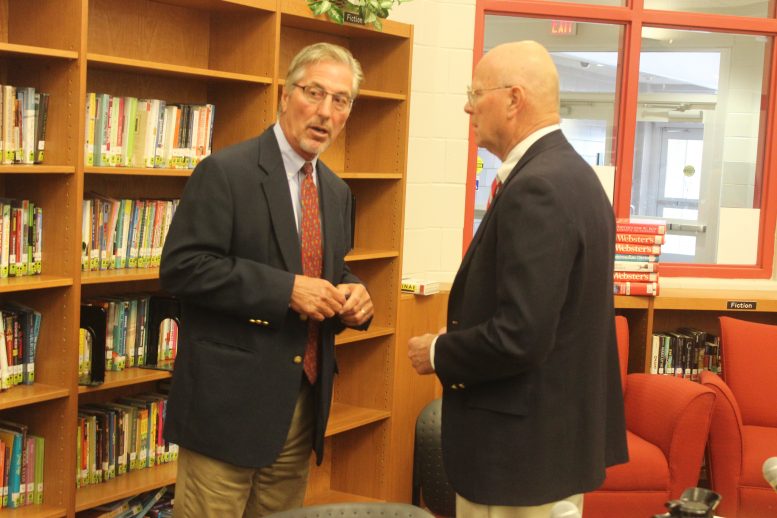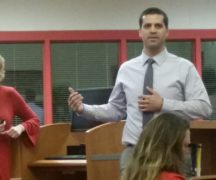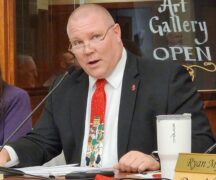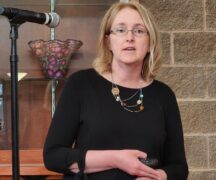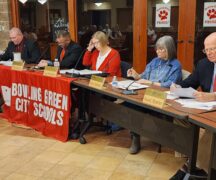By DAVID DUPONT
BG Independent News
It’s back to the task forces for the Bowling Green School District.
The Board of Education, meeting Tuesday a week after voters went to the polls and decisively rejected a $72 million bond issue that would have changed the face of the district, addressed how it would move forward.
And it got some words of advice from some of its critics.
Board President Jill Carr said that “the community has spoken.” That leaves the district with a high school and two elementary schools in need of renovation or replacement.
“The board is ready to move forward,” she said. To that end it will form two task forces, one to focus on facilities and one to focus on financing. Together they will conduct “a full exploration of our options.”
Those task forces will draw from all segments of the community, Carr said. “Their work will not be rushed.”
Later in the meeting one of the district’s harshest critics Richard Chamberlain said the district’s facilities needs were so urgent they had to be addressed immediately. HVAC problems are damaging the buildings.
Noting the five-year forecast presented at the meeting showed the district had a $2 million fund balance, he said the district should use that.
The use of those funds, however, would likely push the district to go to voters for more money sooner than the forecast indicates.
Treasurer Cathy Schuller presented the forecast with the usual caveat: “A forecast is what we know today.”
School treasurers say that as soon as a forecast is completed, it’s wrong. The numbers are based, she said, on “conservative estimates.”
That means assuming the district will receive about the same amount of state aid as it is now, though there’s no way of knowing what the legislature will do in the next biennium budget.
District officials can hope that as the economy improves, income tax revenues will grow.
On the expense side, the district is at the mercy of how many students decide to take College Credit Plus courses and how many open enroll at other schools. The district, she said, loses more money per student for those going to charters, than it would get if the student stayed in BG.
Superintendent Francis Scruci said the district will face an imbalance in kindergarten enrollments.
The district has 70 kindergarteners signed up for Crim, 76 for Conneaut, and only 39 at Kenwood.
That means that an additional class will have to be opened at Conneaut.
The sensory room used to give kids with special needs physical relief during the day will be moved to the gym, which is not ideal. The music teacher will take to the halls in a cart.
“Any kind of influx” in other grades “will cause a problem,” he said. “We’re topped out of space at Conneaut.”
The board also approved establishing a Capital Projects Fund. This fund has no money in it now, but will be available to receive any gifts or other unplanned sources of revenue.
That could be, Schuller said after the meeting, any payments related to the pipeline.
Grant Chamberlain quizzed the board on the fund. He said the bond levy was hurt by the district’s lack of transparency. He complained that three records requests that he made have not been answered.
Carr said they would be handled in a timely manner. Chamberlain said he wanted a specific date.
Brenda Pike said that while the election left the community with a decision, it also left it polarized. She urged the board to use this as an opportunity to bring the community back together.
“We all have the same goal: to move forward with a new plan,” Pike said.
Mark Heider struck a similarly conciliatory tone, concluding his remarks by thanking the board for its service.
He said the bond levy was defeated because it was so expensive and for too long. His grandchildren would end up paying the bill, he said. Also, people wanted to maintain the three elementary schools.
Instead he recommended that the district move ahead with a plan to renovate Conneaut, Kenwood, and the high school, which he said would cost $43 million based on the district’s earlier estimates. That would be less expensive and maintain the three elementary schools.

